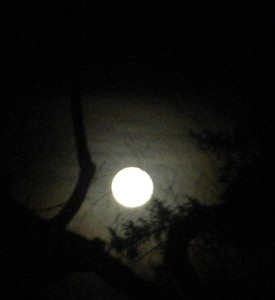
“It is no longer a passion hidden in my veins: it is the goddess Venus herself fastened on her prey.” — Racine
One of the odd pleasures about writing fiction is that you don’t always know what you’re doing until after you’ve done it.
There are parts of the mind (the parts that Jungian psychologist Robert Johnson refers to as the Shadow) that meddle with your fiction behind your back.
You have little or no awareness of the meddling as you write.
You’re too focused on all those conscious tasks that require your attention. The characters, the plot, your deadlines, your typos . . .
But then you re-read what you’ve done and there it is, like the smudgey remnants of an alien footprint — an alien footprint that also seems disturbingly familiar.
Who wrote that?
This Shadow is not necessarily synonymous with darkness per se — I mean here “darkness” as we understand it when we talk about writers whose works are shot through with nihilism or sarcasm or pessimism, or who set out to horrify or frighten. (Although, to be clear, these writers partner with the Shadow — or they do if they want to write well.)
What I’m talking about is something different, as well, from “conflict.” Novels, to be interesting, need conflict. But some conflict is decidedly sunny. In the literary form that I’ve worked in for my first three novels for instance [yes, I know it’s a stretch to call chick litty novels a literary form, be nice, I’m dashing this off as quickly as I can before returning to editing Loose Dogs!] the conflict is often of the “I love him but he doesn’t love me” variety — and you know, as with all romances, that in the end she’ll learn that: Yes. He loves her. Very much indeed.
Novels that hew to a more literary bent depict conflict that is not so sunny, but is — all the same — very well-lit. By which I mean, it’s conflict that you can read about in nearly the same form in any of the popular women’s magazines. Or watch it on Oprah. It scrolls onto your Facebook feed. Things like recovering from childhood abuse, struggling with alcoholism or a spouse’s infidelity, finding out you were adopted.
My confession: as a reader, I find myself avoiding fiction that takes either path. Oh, I’ll read both types once in a while. But they aren’t “my kind of novel.”
And as a writer, I find my Shadow subverts my attempts to take either path as well.
It’s not intentional. On the contrary, I would love to write books that follow rules everyone recognizes immediately — books that I could target easily to a particular niche of readers who would then respond with rapturous delight.
But when I’m writing, the more I follow what is “true” about characters’ decisions and reactions and behavior, the more my writing takes on elements that don’t “fit” with the chicklit/romance model.
So with my last novel, I created this character Libby. And instead of being a strong, assertive heroine, she’s a woman who is pushed around by circumstances and by other people.
And I did a promo of the novel through the Amazon KDP program, and it was enormously successful. 20,000 people downloaded free copies. But many of those people are romance readers. And when they started reading the book, it wasn’t what they expected.
And I got b!tchslapped a bit in the reviews. For which I bear some responsibility. I should not have positioned the book as a romance.
Not that I had much of a choice. Find me a category that fits my novels.
Can’t do it, can you.
And I certainly don’t intend to change what I write so that it will slot into some neat Amazon pigeonhole. Heck, even if I wanted to, I couldn’t.
I’m writing the books I have to write.
Getting pounded in a public forum hurts, of course.
And some of the bruises have flared up a bit from time to time as I’ve worked on Loose Dogs.
Will readers hate this book’s protagonist too?
Perhaps.
But this time, I’ll be ready. It thickened my skin, the response some readers had to Libby.
What’s more, it hardened my resolve. I realized that in a very modest and limited sense — I certainly don’t want to overstate my importance here! — what I’m doing is subversive.
I’m working within what appears, on the surface, to be chicklit/romance, but that’s not really what it is.
It’s too real.
There’s too much Shadow . . .



